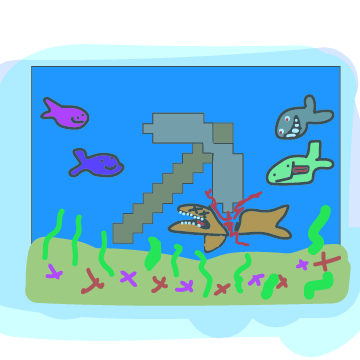The Clarion-Clipperton zone, an area in the Pacific Ocean between Mexico and Hawaii, is a region with abundant copper, cobalt and nickel reserves.
President Donald Trump signed an Executive Order on April 24 that will permit the Department of Commerce to invest in companies that will explore and mine in the Clarion-Clipperton zone, to “counter China’s growing influence over seabed mineral resources.”
The purpose of the order is to “establish the U.S. as a global leader in responsible seabed mineral exploration.” The U.S. currently relies on imports from countries like China to get these critical minerals, and the executive order would make it easier for U.S. companies to compete in the mineral market.
Beijing imposed export controls on some critical minerals after Trump’s tariff spikes on imports from China, which sparked the fear that the U.S. may fall behind on mineral supplies. Rare earth elements are used in key industries including defense, energy and automobiles. In 2023, the U.S. imported about 70 percent of its rare earth minerals from China.
“We have to get back in the game,” Interior Secretary Doug Burgum said, referring to mining. “It’s not just drill, baby, drill. It’s mine, baby, mine. If we don’t do that as a country, we will not be successful. We will literally be at the mercy of others that are controlling our supply chains.”
However, this executive has sparked massive criticism from other countries. The United Nations, environmental groups and several countries, including China, have accused Donald Trump of violating international law in ordering the fast-tracking of approval processes for deep-sea mining in US waters and international waters.
The executive order directly goes against the UN’s International Seabed Authority, which has prevented such mining in international waters while it works on governance frameworks.
The executive order also will have severe detrimental effects on the environment and the biodiversity of the Clarion-Clipperton zone. “There’s a lot of species that depend directly or indirectly on the nodules to live because they live on top, underneath or around the nodules,” deep-sea ecologist Dr Patricia Esquete said.
From the middle of July, nations will gather in Jamaica to resume International Seabed Authority meetings to discuss developments on deep-sea mining and a moratorium.




